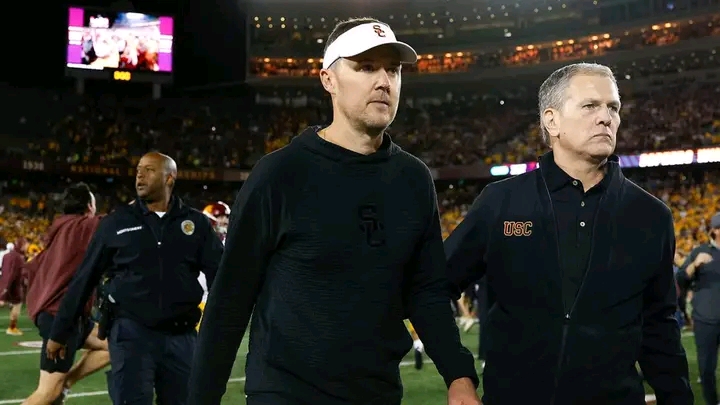After the USC Trojans’ narrow 24-17 defeat against Minnesota, head coach Lincoln Riley expressed his bewilderment regarding the officials’ decision to overturn a crucial goal-line stand by his defense. The game, which came down to the final moments, left Riley seeking clarity on the criteria that led to this pivotal ruling.
In a tense situation with only 59 seconds remaining and the score tied, Minnesota faced a fourth-and-goal from just inside USC’s 1-yard line. The Gophers opted for a quarterback sneak for the second consecutive play, plunging into a mass of players. Initially, the officiating crew determined that Gopher quarterback Max Brosmer had been held short of the end zone. However, after reviewing the play, they reversed their decision, declaring Brosmer had scored a go-ahead touchdown. Despite regaining possession, the Trojans were unable to mount a successful drive to tie the game, dropping their record to 3-2 overall and 1-2 in Big Ten play.
Riley shared his concerns about the explanation he received regarding the reversal, stating, “They believed or thought that the runner had scored, and they felt like that was enough to overturn it.” He emphasized that the rule clearly stipulates that for a call to be overturned, there must be indisputable evidence, which he felt was lacking in this instance.
The situation was further complicated by the nature of the play. In the scramble, the football eventually ended up on the ground and was recovered by a USC defender. Yet, the officials maintained that Brosmer had crossed the goal line before any potential fumble occurred. Riley remarked, “When you have those sneaks, it’s nearly impossible to see the ball. The first instance you actually see the ball is when it’s already on the ground.”
Had the call been made a touchdown initially, Riley suggested that USC might have accepted the outcome more readily. However, because the original ruling favored the defense, the subsequent reversal left the team frustrated and seeking answers about the consistency and application of the rules in such high-stakes situations.

